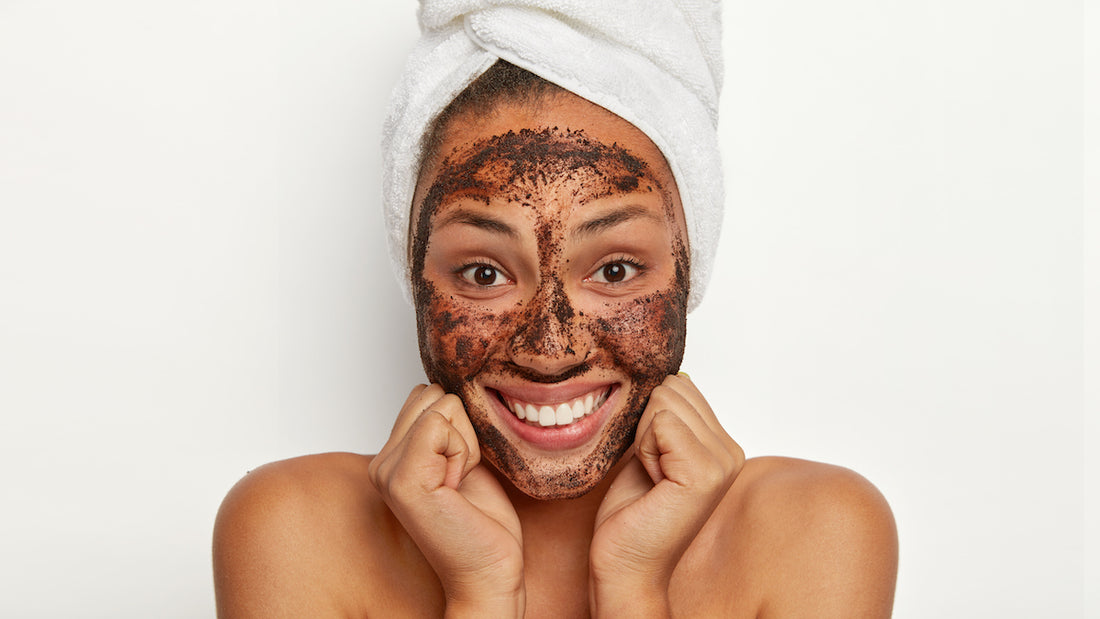
The Risks of Over Exfoliated Skin
Share
The term ‘exfoliation’ makes me think of a relaxing beauty treatment at a spa. It creates a vision of fresh and healthy skin. However, exfoliating too often can actually damage your skin and is something you really want to avoid. Over exfoliated skin is all too common so it’s time to learn the signs that tell us when we’re not treating our skin the way we should be.
Benefits of Exfoliating the Skin
Even though our skin sheds naturally, sometimes the dead skin cells don’t shed completely which can clog our pores and cause patches of dry skin. Exfoliating the skin gets rid of the top layer of dead skin cells so that the new and healthy cells underneath are exposed. This gives our skin a smoother, healthier, more vibrant glow. Exfoliating can also help control breakouts and help to keep our skin feeling hydrated and fresh. In the long term, exfoliating can even increase collagen production, giving our skin that youthful glow and can minimise the appearance of fine lines and sagging.²
How Do We Exfoliate the Skin?
For many of us, exfoliation is part of our regular beauty routine. Skin exfoliation can be done using physical or chemical exfoliators. Physical exfoliators, such as facial scrubs with granules, or brushes and hand-held exfoliators will physically scrub away the dead skin cells by rubbing against your skin.
Chemical exfoliators are different because they are made from a variety of acids, such as lactic acid, salicylic acid or glycolic acid, and work by breaking the bonds that hold skin cells together, allowing the dead skin cells to be removed.¹
What Causes Over Exfoliated Skin?
With so many exfoliating products on the market today, we are often exfoliating our skin without even being aware of it. While the physical exfoliators are more obvious and we’ll know when we’re scrubbing our skin, we may not always be aware of the acids that are shedding our skin cells in a product. Exfoliators can include products like scrubbing cleansers, toners, masks and serums. With all this exfoliation built into the products we use, it’s no wonder our skin is prone to becoming over exfoliated.
While everyone’s skin is different and you need to find what feels good for your skin, as a general rule in order to avoid damaging your skin, you should not exfoliate more than twice a week, according to dermatologist Dr. Anand Geria.³ This will give your skin the regenerating boost it needs without causing any negative side effects.
If you are in doubt, talk to your dermatologist about your particular skin condition and skin type.
The Key Signs of Over Exfoliated Skin
If you think you might be over exfoliating your skin, look for the classic signs:
- Dry and peeling skin
- Redness and inflammation
- Burning sensation on the skin
- More breakouts of small pimples
- Skin becoming more sensitive to other products you usually use
- Skin feels very tight and looks waxy/shiny
How To Treat Over Exfoliated Skin
After exfoliating, always apply a good moisturizer. If you think you have over exfoliated skin, the best way to heal your damaged skin is to stop using harsh cleansers – especially ones with exfoliating acids in them or physical exfoliators – and use a gentle yet effective moisturizer like Skin MD Natural that will help bring your skin back to life. Skin MD Natural will soothe your skin and lock in moisture, with the added healing benefits of aloe vera and yarrow.
Check the labels of your skin care products to make sure you know which products have exfoliating properties so that you can avoid accidentally causing over exfoliated skin. Remember that exfoliating your skin is a great way to help your skin regenerate and keep it looking fresh and vibrant – just don’t do it more often than you need.
¹ https://www.healthline.com/health/beauty-skin-care/chemical-exfoliation
² https://www.healthline.com/health/beauty-skin-care/meaning-of-exfoliating
³ https://www.healthline.com/health/beauty-skin-care/over-exfoliating
